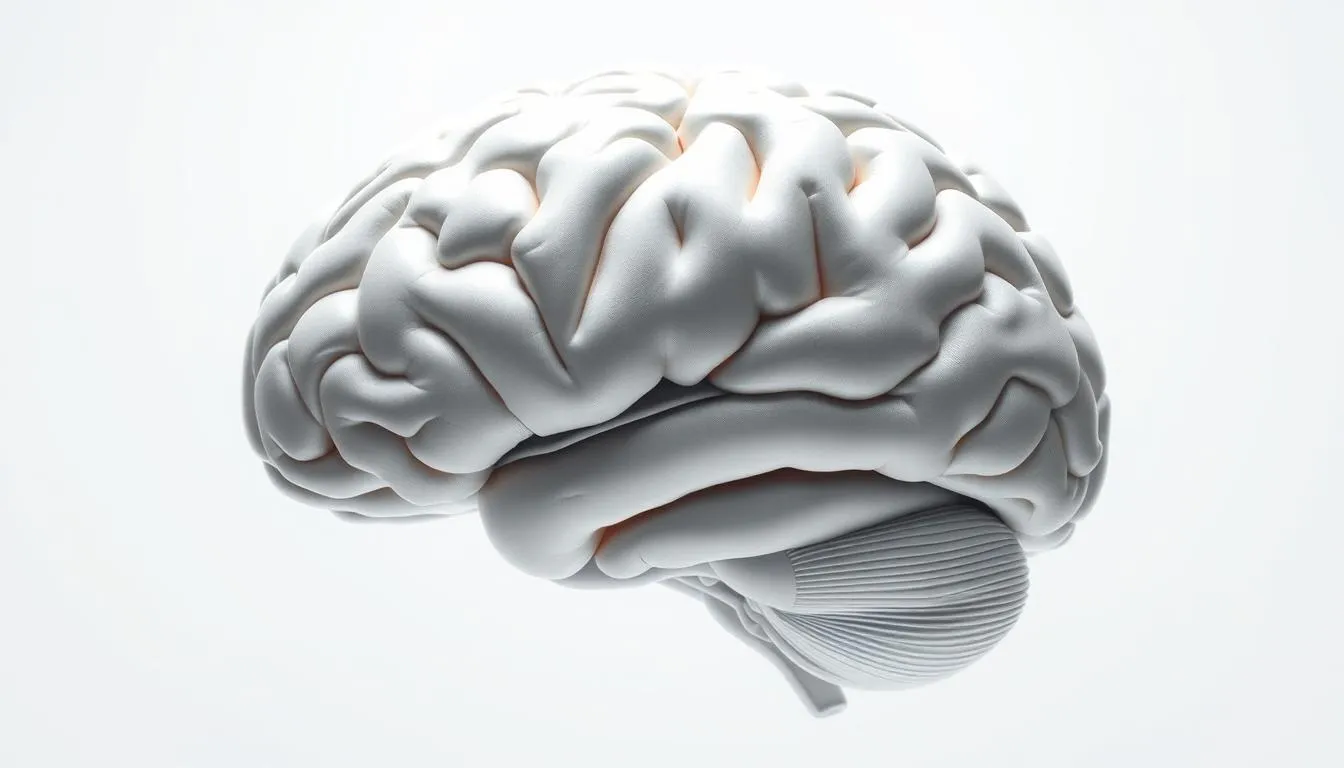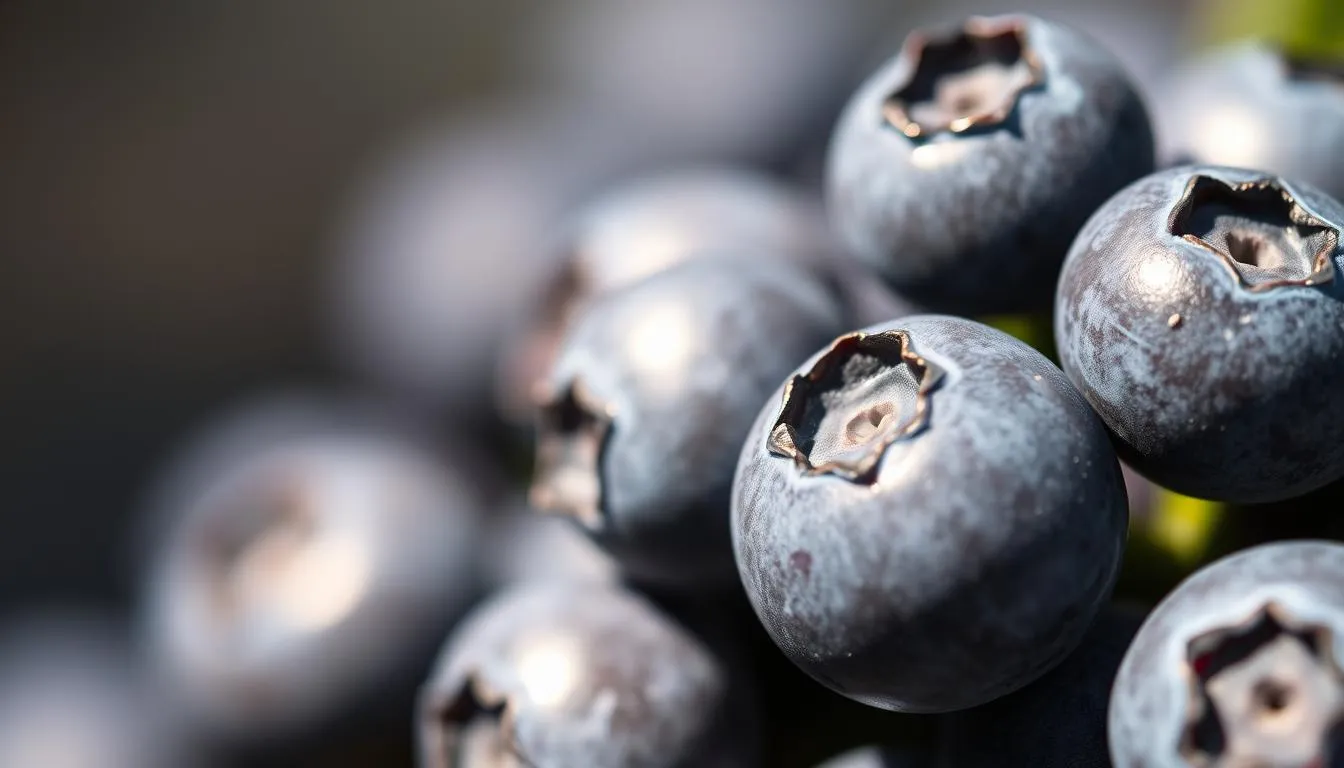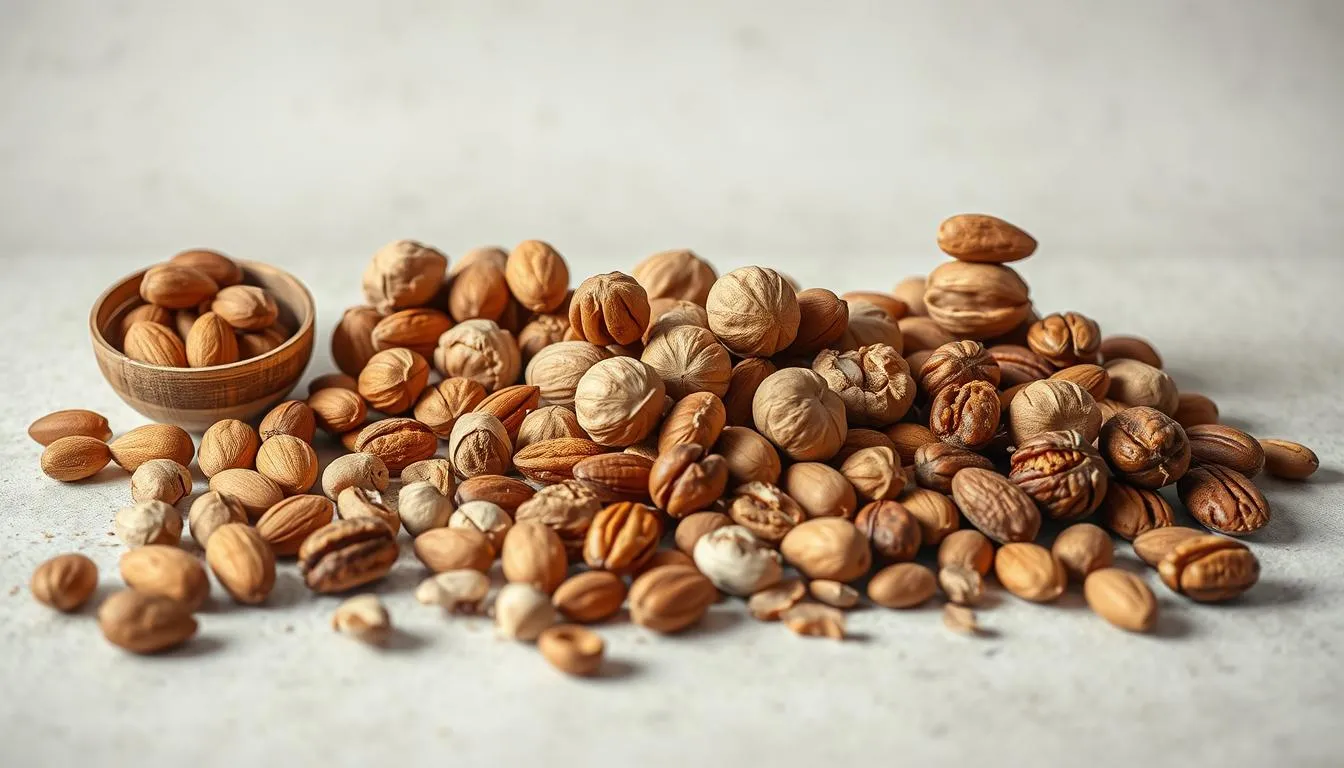I remember the afternoon my focus slipped away — a meeting, a grocery list, and a blank mind. That small, unsettling fog made me curious about how simple meals affect thinking, mood, and memory.
Everyday choices at the market can deliver compounds that help the brain. Eggs, oily fish, blueberries, nuts, leafy greens, coffee, and dark chocolate all carry nutrients linked to sharper memory and better alertness.
This article will unpack how antioxidants, choline, omega-3s, polyphenols, and caffeine work, and it will show practical portions and swaps you can try in a U.S. kitchen.
Expect clear, evidence-based tips, shopping notes on products and trends, and realistic advice: consistent, balanced eating and simple habit tweaks matter more than any single superitem.
Key Takeaways
- Common groceries can supply compounds tied to memory and focus.
- Research links choline, omega-3s, flavonoids, and caffeine to cognitive effects.
- Small, practical swaps make brain-boosting easy and sustainable.
- We’ll highlight portions, simple recipes, and product trends to shop smarter.
- Individual responses vary; whole-person habits matter most for lasting benefits.
What are natural nootropics in everyday foods?
Many everyday groceries carry compounds that quietly support attention, memory, and mood. These are natural nootropics — dietary compounds that help core cognitive functions without prescription drugs.
Think of them as helpful ingredients you already eat. Examples include caffeine in coffee, anthocyanins from blueberries, choline from eggs, DHA from salmon, vitamin E and polyphenols in nuts, and carotenoids in leafy greens.
These nutrients influence how the brain works by supporting neurotransmitter production, maintaining cell membranes, and reducing oxidative stress. That can improve short-term attention and memory, and protect long-term brain health.
- They don’t require a strict regimen — regular, simple meals and snacks are enough to add benefits.
- “Natural” isn’t unlimited: portions and balance still matter for best results.
- Research is evolving, but a varied, minimally processed plate shows the most promise.
This article will next explain how these nutrients act on the nervous system and where to find them in common groceries. Treat these compounds as building blocks for a brain-healthy lifestyle, not quick fixes, and you’ll get the most lasting content value.
How food-based nootropics work: nutrients, neurotransmitters, and the nervous system
Simple pantry nutrients work together to protect brain cells, tune signaling, and keep thinking sharp.
Key mechanisms include antioxidant protection, neuroplasticity, and healthy blood flow. Antioxidant polyphenols from blueberries and cocoa help shield neurons from oxidative stress. That protection can support neuroplasticity — the brain’s ability to adapt and learn.

Core nutrient actions
DHA, a form of omega-3 fatty acids, embeds into neuronal membranes. This improves membrane fluidity and receptor function, which supports clear signaling and better cognitive performance.
Choline is essential for the choline → acetylcholine pathway. Adequate choline helps make acetylcholine, a neurotransmitter tied to memory formation and attention.
- B vitamins (folate, B6) help make neurotransmitters and support cellular energy for sustained mental effort.
- Amino acids serve as the building blocks for many neurotransmitters, helping balance focus, motivation, and mood.
- Polyphenols and lifestyle factors that boost circulation deliver oxygen and glucose to high-demand brain areas.
Caffeine works by blocking adenosine receptors, sharpening alertness and often improving working-memory related brain activity. Timing and dose affect the overall effects.
Practical note: Think in terms of dietary patterns rich in these nutrients for gradual, realistic gains. Current research favors consistent, varied eating over single-item fixes. This article’s next sections show specific groceries and simple swaps to build that pattern.
Eggs for memory and learning: choline, B vitamins, and brain development
Eggs pack several key brain-building nutrients that support memory and early neural growth.
Choline and acetylcholine: research-backed links to cognitive functions
Choline is a direct precursor to acetylcholine, a neurotransmitter tied to memory and attention. A 2019 Nutrients article highlights choline’s role in maintaining neuronal membrane integrity and cholinergic signaling.
Some stroke studies also link higher choline with lower risk of post-stroke cognitive impairment, suggesting long-term protective benefits. Eggs remain one of the richest natural sources for this nutrient.
Simple ways to add eggs to a brain-healthy diet
Eggs also supply B vitamins, including folate, which help make neurotransmitters that affect mood and mental energy.
- Hard-boiled eggs for salads or snacks.
- Veggie omelets, breakfast burritos, or avocado-and-egg toast.
- Make-ahead egg bakes or muffin-tin frittatas for busy mornings.
Balance eggs with leafy greens or whole grains to add fiber, carotenoids, and steadier energy for focus. Most healthy adults can eat eggs regularly; follow medical guidance if you have specific cholesterol concerns.
| Nutrient | Typical amount per large egg | Benefit |
|---|---|---|
| Choline | ~147 mg | Supports acetylcholine production, memory, development |
| Vitamin B12 & Folate | Variable | Aid neurotransmitter synthesis and energy metabolism |
| Protein | 6–7 g | Steady energy and building blocks for brain cells |
Practical tip: Aim for several servings across the week. Consistent intake matters more than occasional extras for supporting memory and learning. For details on top choline sources, see top choline sources.
Blueberries for focus and mood: anthocyanins with cognitive benefits
Blueberries deliver a sweet, simple way to support focus and steady mood through plant pigments called anthocyanins.
How they work: Anthocyanins act as antioxidants that help protect neural tissue. This reduces inflammation and oxidative stress, which supports sharper attention and a steadier mood over time.
Randomized trials and systematic reviews report improved executive function, working memory, and spatial memory in children and adults after regular blueberry intake. Some studies also show higher brain blood-oxygen levels in older adults at risk of decline, suggesting better circulation as one mechanism.

Choosing products: Fresh and frozen berries are nutritionally similar. Dried berries can be higher in sugar—pick unsweetened versions when possible.
- Easy add-ins: blend into smoothies, layer in yogurt parfaits, stir into oatmeal, or use as salad toppers.
- Portion idea: about one cup of fresh or frozen, several days a week, builds consistency without fuss.
- Pair with nuts or plain yogurt for protein and healthy fats to round out the snack.
Check labels on packaged products for added sugars so benefits remain front and center. This short article content aims to give practical, research-backed tips you can use at the market and at home.
Oily fish and omega-3 fatty acids for brain health and performance
Including fatty fish several times weekly gives the brain direct access to DHA, a key structural fat for neurons.
DHA embeds into neuronal phospholipid membranes, improving membrane fluidity, receptor activity, and signal transmission. These changes support clear thinking and faster recall, and research links regular intake to better mood and cognitive performance.
DHA and membranes: why these long-chain fats matter
DHA and other long-chain omega-3 fatty acids help cell membranes remain flexible. Flexible membranes let receptors and channels work well, which keeps neural communication efficient.
Top U.S. choices: salmon, sardines, mackerel, herring
Pick canned salmon and sardines for budget-friendly, shelf-stable options. Fresh or canned mackerel and herring add variety and flavor.
- Aim for about two seafood servings per week to support diet-related benefits.
- Rotate species to balance taste, cost, and sustainability.
Plant options and how to balance your diet
Walnuts, chia, and flax supply ALA, which the body converts only modestly to DHA. If you prefer plant-forward choices, consider algae-based DHA products for direct support.
Practical ideas: Try salmon tacos, sardine toast with lemon and herbs, or sheet-pan mackerel with vegetables for quick weeknight meals.
Also note that DHA concentrates in the retina, linking eye and brain performance. Check local seafood advisories if you are mercury-sensitive, and focus on consistent intake rather than perfection.
Nuts as natural nootropics: vitamin E, plant polyphenols, and healthy fats
A small handful of mixed nuts can be a simple daily habit that supports cognition and long-term brain health.
Nuts are easy, portable snacks that supply vitamin E, iron, zinc, and antioxidants linked with long-term cognitive support. Regular intake associates with reduced age-related decline and steady mental performance.

Walnuts, pistachios, Brazil nuts, peanuts: what to pick and why
Walnuts deliver plant omega-3 ALA for cell membrane health. Pistachios offer polyphenols that act as antioxidants.
Brazil nuts are rich in selenium — very small portions go a long way. Peanuts add resveratrol and folate for metabolic support.
- Smart portions: aim for a small handful to balance calories while getting healthy fats and key nutrients.
- Mix-and-match: try trail mixes with walnuts and dark chocolate nibs, pistachios on salads, or peanut butter with apple slices.
- Rotate types across the week to cover a broad spectrum of vitamins and micronutrients.
- Choose unsalted or lightly salted varieties to keep sodium low and pair nuts with fruit for extra fiber and antioxidants.
“Regular, moderate intake is the key — small, consistent servings add up to lasting brain benefits.”
For more on related brain-supporting products, see brain-supporting products. This short article section highlights practical ingredients you can add today for steady cognitive benefits.
Leafy greens for attention and learning: folate, iron, lutein, and zeaxanthin
Leafy greens deliver a compact mix of B vitamins, iron, and carotenoids that support clear thinking and steady focus.
Spinach, kale, and Swiss chard supply folate and B6 for neurotransmitter production. That helps attention and learning during busy workdays or study sessions.
Greens that deliver
Iron in greens supports oxygen transport, which underpins mental stamina and clarity. Lutein and zeaxanthin—especially abundant in kale and spinach—link eye function to visual processing in the brain.
- Easy wins: spinach in omelets, kale Caesar with salmon, or sautéed Swiss chard with garlic and lemon.
- Boost iron absorption: add a squeeze of citrus and pair greens with healthy fats to aid carotenoid uptake.
- Freezer tip: keep frozen spinach or kale for smoothies and soups to make consistent servings simple.
- Mix greens across the week to vary taste and micronutrients.
“Consistency — a serving most days — builds lasting brain health benefits.”
This short article content gives practical steps to use everyday greens as part of a brain-friendly routine. Use these tips to make steady improvements over time.
Coffee and the effects of caffeine on alertness, attention, and working memory
Sipping brewed coffee often clears early-day fog by blocking sleep-promoting signals in the brain.
Caffeine works as an adenosine receptor antagonist. That reduces fatigue and lifts alertness, often sharpening attention for mentally demanding tasks.
Neuroimaging studies show clear effects of caffeine on working-memory load and learning efficiency. Scans reveal improved coordination between hemispheres during learning and sharper activation where tasks demand more effort.
Large cohort work links regular coffee intake with lower odds of some neurological conditions. Still, moderation matters: many people do best with one to two cups daily to avoid jitteriness or sleep disruption.
- Timing: avoid late-day cups to protect sleep levels.
- Sensitivity varies—track your response and adjust serving size or timing.
- Pair coffee with protein at breakfast to steady energy and reduce jitters.
- Late-afternoon options: half-caf, smaller servings, or herbal drinks.
- Check added sugars in ready-to-drink products and drink water to stay hydrated.
Use this article guidance to balance short-term boosts in performance with steady brain health. Adjust cups and timing to fit your routine and comfort.
Dark chocolate for mood and memory: flavonoids, magnesium, and nootropic effects
Rich cocoa delivers plant compounds that may support blood flow and subtle changes in brain function.
Flavonoids in dark chocolate reduce inflammation and may help neurogenesis. Studies link regular cocoa intake with improved visual-spatial memory and abstract reasoning, suggesting true cognitive effects over time.
Cocoa content and portion guidance for cognitive benefits
Choose bars with 70–80% cocoa or higher to maximize polyphenols while limiting added sugar.
- One to two small squares after a meal or a tablespoon of unsweetened cocoa in smoothies or oats.
- Pair with berries or nuts for extra antioxidants and healthy fats.
- Read labels to avoid ultra-processed additives that dilute the cognitive benefits of the product.
- Note caffeine sensitivity; enjoy earlier in the day if sleep is affected.
“Modest, consistent portions deliver the best long-term payoff for mood and clear thinking.”
| Feature | Typical amount | Benefit |
|---|---|---|
| Flavonoids | High in 70%+ bars | Support blood flow and neurogenesis |
| Magnesium & B vitamins | Small amounts per serving | Help neurotransmitter production and mood |
| Caffeine | Low to moderate | Subtle alerting effects; time use wisely |
For a deeper look at cocoa and cognition, see this cocoa and cognition review. This brief article content aims to help you pick sensible products and practical portions to add dark chocolate into a brain-supporting routine.
Nootropics in food and beverages: adaptogens on the rise
Functional botanicals are moving fast from specialty shops onto supermarket shelves, reshaping how we think about mental wellness.
Adaptogens are plant-based compounds aimed at helping the body adapt to stress, while nootropics enhance cognitive functions like focus and memory. That distinction helps explain why both types of ingredients now appear in many foods and beverages with mood or clarity claims.
Market trends: growth in mood and brain health products
Global launch data show rapid growth: adaptogens at a five‑year CAGR of 107% and cognitive ingredients at about 41% in new products. Recent surveys report roughly 10% of buyers chose items for brain health and 8% to de‑stress.
Ones to watch
Notable botanicals include hemp (calming omega‑rich claims), ashwagandha (stress and sleep support), ginseng (energy, focus), rhodiola (fatigue resistance), and kava (calming). Brands often blend these herbs into ready-to-drink beverages that target both mood and mental clarity.
Shop smart: look for standardized extracts, clear dosages, and label guidance. Treat these products and supplements as complements to a solid diet and lifestyle, and consult a clinician if you have health conditions, take medicines, or are pregnant.
Nootropics in food for children: nutrients, behavior, and learning
What children eat each day often shapes their mood, focus, and how well they learn at school. A nutrient-dense, varied pattern helps steady energy and supports attention during lessons.
What research suggests about diet quality, attention, and school performance
Research over decades links overall diet quality to classroom focus and standardized test outcomes more often than any single ingredient.
Studies on sugar and hyperactivity show mixed results. Context matters: sleep, overall dietary patterns, and routines usually affect behavior more than one snack.
- Support steady focus: offer breakfasts with protein and fiber and lunches with vegetables and lean protein.
- Limit caffeine: kids are sensitive—small amounts can harm sleep and behavior, so avoid caffeinated drinks.
- Key micronutrients: iron, certain vitamins, and other nutrients matter for cognition; low iron has shown links to poorer test scores.
- Supplements: megavitamin approaches give mixed outcomes; balanced meals come first, supplements only with pediatric advice.
“Regular family meals and a calm eating environment can improve dietary choices and school-day focus.”
Caregivers should also watch for environmental risks like lead and consult pediatricians for testing if needed. Practical routines—simple meals, healthy snacks that combine carbs with protein or fats, and consistent sleep—help children get the most from learning and support long-term brain health.
Build your brain-healthy plate today
A simple meal plan that blends eggs, berries, greens, nuts, and oily fish can support sharper focus and steady mood.
Easy framework: fill half your plate with colorful produce (leafy greens, berries), add quality protein like eggs or fish, and include healthy fats such as nuts or olive oil.
- Weekly rhythm: aim for two oily fish meals, eggs several mornings, a daily handful of nuts, and berries most days.
- Example day: veggie omelet for breakfast, sardine-and-avocado toast for lunch, salmon with kale for dinner; snack on blueberries and a square of high‑cocoa dark chocolate.
- Timing tips: enjoy moderate coffee earlier to boost alertness and keep chocolate portions small to protect sleep and avoid excess sugar.
- Prep staples: hard‑boiled eggs, washed greens, and frozen berries make smart choices easy when life gets busy.
Remember: hydration, steady sleep, and movement amplify the benefits of a smart diet and chosen ingredients.
“Start with one habit today—a fish dinner or a berry-and-nut snack—and build from there.”
Track how meals make you feel and perform. Small, consistent shifts in what you eat can improve cognitive performance over time. This article offers practical steps to get started.
Conclusion
Small, consistent choices at the grocery can yield measurable boosts to memory, focus, and mood. Build daily habits around eggs, berries, oily fish, leafy greens, and nuts to anchor clearer thinking and steady mental performance.
Evidence shows choline, anthocyanins, omega‑3s, vitamin E, folate, caffeine, and flavonoids each have an effect that supports long‑term brain health and acute benefits for attention and recall. Market trends also show more adaptogen and functional products; read labels and seek professional guidance when trying new formulas.
Pick two simple swaps or additions from this article and add them to this week’s grocery list. Track how they make you feel—small steps add up to real gains for mood, memory, and overall health.
FAQ
What are natural brain enhancers found in everyday food?
Natural brain enhancers are nutrients and compounds in common foods that support cognition, mood, and nervous system function. Key examples include omega-3 fatty acids from oily fish, choline from eggs, B vitamins in whole grains and leafy greens, flavonoids in dark chocolate and berries, and antioxidants and polyphenols in nuts and vegetables. These ingredients help cell membranes, neurotransmitter production, and protect against oxidative stress.
How do dietary brain boosters work to improve memory and attention?
They work through several mechanisms: supplying building blocks for neurotransmitters (for example, choline for acetylcholine), supporting neuroplasticity and synapse formation, improving cerebral blood flow, and reducing inflammation and oxidative damage. Vitamins, amino acids, and fatty acids all play roles in signaling and energy production in brain cells.
Which foods are best for supporting memory and learning?
Eggs, oily fish like salmon and sardines, blueberries, leafy greens (spinach, kale), nuts (walnuts, pistachios, Brazil nuts), and dark chocolate with high cocoa content are top choices. They provide choline, DHA, folate, iron, antioxidants, vitamin E, magnesium, and other nutrients linked to better memory, attention, and mood.
Why is choline important, and how much can eggs help?
Choline is a precursor to acetylcholine, a neurotransmitter involved in memory and learning. One large egg contains about 147 mg of choline, which helps support cognitive development and adult memory processes when combined with a balanced diet. For many people, eggs are an efficient, research-backed choline source.
How do omega-3 fatty acids benefit the brain and which foods contain them?
DHA and EPA are long-chain omega-3s that integrate into brain cell membranes, supporting structure, signaling, and anti-inflammatory effects. Fatty fish such as salmon, mackerel, sardines, and herring are rich sources. Plant options like flaxseed and chia provide ALA, which the body partially converts to DHA/EPA, so balancing sources matters.
Can blueberries and dark chocolate really improve focus and mood?
Evidence suggests flavonoid-rich foods like blueberries and high-cocoa dark chocolate can improve working memory, attention, and mood over time. Anthocyanins and flavanols support blood flow to the brain and reduce oxidative stress. Choose fresh or frozen berries and dark chocolate with at least 70% cocoa for best effects, and keep portions moderate.
Are nuts effective for cognitive health and which ones should I eat?
Yes. Nuts deliver vitamin E, healthy fats, and plant polyphenols that protect neurons and support vascular health. Walnuts are notable for alpha-linolenic acid and polyunsaturated fats; pistachios offer lutein and B vitamins; Brazil nuts are a selenium source. Aim for a small daily serving as part of a balanced diet.
What role do leafy greens play in attention and learning?
Leafy greens supply folate, iron, lutein, and zeaxanthin—nutrients linked to cognitive performance and neural health. Regular intake of spinach, kale, and Swiss chard supports energy metabolism, oxygen delivery, and visual-processing nutrients that also relate to attention and learning.
How does caffeine affect alertness, attention, and working memory?
Caffeine blocks adenosine receptors, which increases alertness, improves reaction time, and can transiently boost attention and working memory. Moderate amounts—about 40–200 mg per dose depending on tolerance—are effective. Avoid excess late in the day to prevent sleep disruption, which harms cognition.
Are adaptogens and other botanical ingredients in beverages worth trying?
Some adaptogens—ashwagandha, rhodiola, ginseng, and hemp derivatives—show promise for stress resilience and mood, but evidence varies by compound and dose. They may complement a brain-healthy diet, yet quality, standardized extracts and consulting a healthcare provider are important before regular use.
What should parents know about foods that support children’s behavior and learning?
Diet quality matters for attention and school performance. Ensure adequate iron, iodine, omega-3s, choline, and B vitamins through a varied diet with fish, eggs, whole grains, fruits, vegetables, and dairy. Limit processed foods and excess added sugar. For concerns about behavior or learning, discuss assessment and guidance with a pediatrician.
How can I build a brain-healthy plate every day?
Fill half your plate with colorful vegetables and berries, include a portion of oily fish or plant omega-3 sources several times a week, add eggs or legumes for choline and protein, snack on a small handful of nuts, and choose whole grains and leafy greens. Hydrate, prioritize sleep, and manage stress to maximize cognitive benefits.
